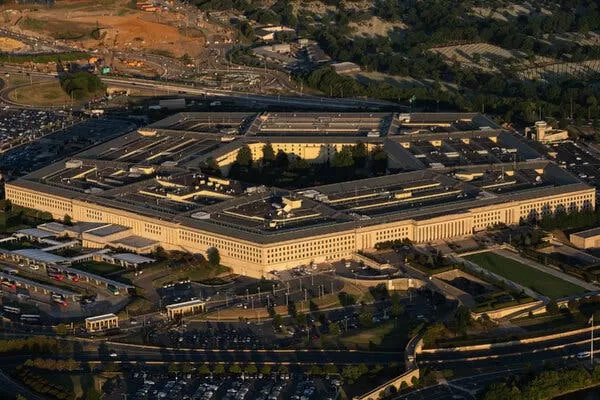The War on Words: Trump's Proposed Rebranding of the Pentagon
Share- Nishadil
- September 05, 2025
- 0 Comments
- 3 minutes read
- 47 Views

Trump Reportedly Considers Renaming Department of Defense to 'Department of War'
Former President Donald J. Trump is reportedly contemplating rebranding the Department of Defense as the 'Department of War,' a move that could profoundly redefine America's global posture, spark intense debate, and shift the national conversation around military policy and international relations.
In a move poised to ignite fervent debate and reshape America's global image, former President Donald J. Trump is reportedly considering a profound alteration to the nation's military apparatus: renaming the Department of Defense to the 'Department of War.' This potential rebranding, a dramatic departure from decades of established nomenclature, signals not merely a semantic shift but a deliberate reorientation of the country's psychological and strategic posture on the international stage.
The Department of Defense, established in 1947 by President Harry S.
Truman, was itself a rebranding from the Department of War. This post-World War II shift was a conscious effort to reflect a more defensive, rather than aggressive, national security policy. It aimed to project an image of a nation committed to peace through strength, rather than one inherently seeking conflict.
Critics of Trump's proposed change are quick to highlight this historical context, arguing that reverting to 'War' would unravel decades of diplomatic messaging, potentially signaling a more belligerent stance to both allies and adversaries.
Proponents, likely within Trump's base, might argue that 'Department of War' is a more honest and direct reflection of the department's actual function – to wage war when necessary to protect national interests.
They might contend that 'Defense' is a euphemism that obscures the hard realities of global power dynamics and that a more assertive label aligns with an 'America First' foreign policy. This perspective often frames the military's role as proactive engagement rather than reactive protection, emphasizing a readiness to project force.
However, the symbolic weight of such a name change cannot be overstated.
Internationally, it could be perceived as a provocative signal, escalating tensions and fueling narratives of American aggression. Allies might view it with apprehension, wondering if it portends a more unilateral and confrontational U.S. foreign policy. Adversaries, meanwhile, could seize upon it as propaganda, framing American actions through the lens of bellicosity.
Domestically, the name change would undoubtedly spark a heated cultural and political battle, forcing a national conversation about the very nature of American power and its deployment.
Beyond the symbolism, questions linger about whether such a rebranding would usher in substantive policy shifts.
Would a 'Department of War' be more inclined to intervention, less restrained by diplomatic considerations? Or would it primarily serve as a rhetorical tool, reinforcing a particular ideological outlook without fundamentally altering military strategy? Observers suggest that while operational realities might not immediately change, the public perception and internal culture of the institution could gradually evolve under a new, more aggressive moniker.
As the nation grapples with its role in an increasingly complex world, the prospect of renaming the Department of Defense to the 'Department of War' stands as a stark indicator of the ongoing debate about American identity and global engagement.
It challenges citizens to consider not just the words we use, but the fundamental meaning and intent behind them, and what message they send to the world about who America is and what it stands for.
.Disclaimer: This article was generated in part using artificial intelligence and may contain errors or omissions. The content is provided for informational purposes only and does not constitute professional advice. We makes no representations or warranties regarding its accuracy, completeness, or reliability. Readers are advised to verify the information independently before relying on







